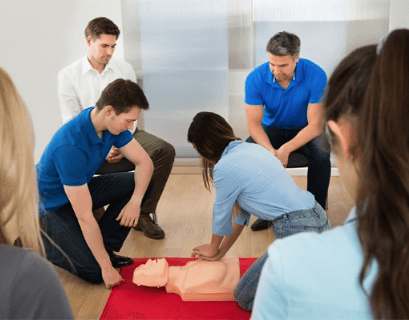
How Often Should I Take a CPR Class?
Every second matters when faced with a cardiac emergency. Imagine this: you witness a person collapse—would you know how to respond? Cardiopulmonary Resuscitation (CPR) may be the difference between life and death.
CPR is not a skill, rather, it’s a superpower—the power to resuscitate a heartbeat, awaken a life, and give families a second opportunity for time with loved ones. But like all skills, one’s ability to perform CPR weakens with time. So, when should you become re-certified in CPR?
CPR Certification: Why It's Not a "One-and-Done"
According to the American Heart Association, individuals should get recertified every two years. By doing this, you’ll be able to stay up to speed on the latest life-saving techniques and adhering to newly introduced guidelines.
Passing a CPR class two years ago doesn't necessarily mean you'll remember everything during an emergency.
Why Regular CPR Training Could Save a Life
As science continues to progress, so do improved CPR techniques. For example, the American Heart Association has updated CPR standards stating that “Hands-Only CPR is just as effective as conventional CPR with breaths”, revolutionizing the ability of bystanders to save a life.
But here's the catch: studies show people begin to forget CPR in a mere three to six months after training. Simply put, if you don’t use it, you lose it. This includes your level of confidence and overall ability to efficiently perform CPR. Do you want to have a rescuer who "kind of" recalls CPR to try to save your life?
Who Should Take a CPR Class More Often?
Although CPR is crucial for all to stay up to date with, certain groups especially require the ability to confidently perform CPR:
● Healthcare Professionals & First Responders – Most are required to undergo annual refresher training to preserve high-performance CPR skills.
● Teachers, Coaches, & Daycare Providers – Children have different CPR requirements, for which those responsible for their care must be trained on a regular basis.
● Workplace Safety Teams – As a first aid responder appointed by the workplace, continuous training keeps you ready to respond.
● Parents & Caregivers of High-Risk Individuals – When you care for those at an increased risk of Sudden Cardiac Arrest (SCA), being confident in your skills is a must.
Hands-Only CPR: Does It Require Training?
It absolutely does! The American Heart Association promotes hands-only CPR for bystanders who witness a sudden cardiac arrest. It’s simple: just chest compressions but no breaths. However, even this method benefits from regular practice.
Even if you’ve taken a class before, a refresher ensures your technique is up to date and strong. Remember, losing your ability to perform effective CPR can cost a life.
Keeping Your CPR Skills Life-Saving Ready
Although CPR certifications are required to be renewed every two years, taking a refresher course or practicing with online training modules biannually can help bridge the gap in memory. Various organizations, such as Starting Hearts, offer community training programs that will keep you prepared.
The more practice, the better you'll perform when it really matters.
Act Now
Would you know how to respond if someone you cared about experienced SCA? Would you be able to spring into action and save a life?
If you delayed for even a second yesterday, today's the day to freshen up your CPR techniques. Because in the end, it's all about seconds, with your expertise and immediate action making the difference between life and death.
At Starting Hearts, we can provide you with specific training that can make a life-saving difference.
Contact us for more information: info@startinghearts.org.
Cassidy Layne is a pre-nursing student, EMT-trainee, and healthcare writer based in Texas.
